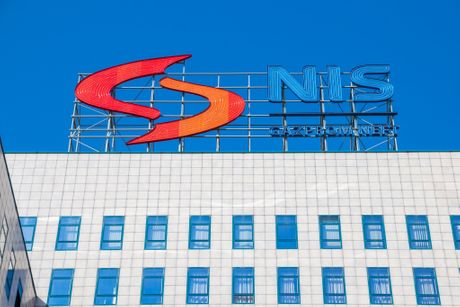Bajatovic: Final talks between lawyers representing NIS and OFAC to be held this evening

General Director of the public company Srbijagas Dusan Bajatovic says that final discussions between lawyers representing the Petroleum Industry of Serbia (NIS) and the US Office of Foreign Assets Control (OFAC) will be held this evening, regarding the announced US sanctions against NIS.
"Whatever OFAC decides tomorrow, neither nationalization nor bankruptcy (of NIS) will occur and NIS will be able to function on the Serbian market using dinars (Serbian currency)," said Bajatovic.
He told RTS that it is in the economic, business, and even political interest for production to continue at NIS.
"NIS has both the financial conditions and oil reserves at its disposal to continue working in the coming period and supplying the Serbian market unobstructed," said Bajatovic.
He pointed out that OFAC has very high discretionary powers and that there are now two legal processes, one is removing NIS from the list of sanctions, which he says is not realistic, because according to a new US law the proposal must go to Congress and this cannot happen quickly, regardless of the good tendencies in the negotiations between the US and Russia.
Bajatovic said that another legal process is licensing, and he cited Gazprom Bank as an example of licensing in Europe, which was given the right to perform certain activities in order for the gas supply to continue.
Another example he mentioned is the oil company Rosneft, which covered 12 percent of the market in Germany and still has not changed its ownership structure.
According to him, those examples show that exceptions exist if they can be justified.
He stressed that certain TV stations, which he says are close to non-governmental organizations, give airtime to economists who speak in favor of NIS shutting down "in order for Serbia to have cheaper (oil) derivatives" - which, Bajatovic says, is absolutely incorrect and against Serbia's national interests.
"Maybe sanctions were imposed on us collaterally, as there is majority Russian capital in NIS, but it is a Serbian company and, among other things, energy stability in Serbia in every sense depends on it, and in fact it is also a question of national stability and the country's security and that is why we have to find an answer," said Bajatovic.
He added that two main issues have arisen and that one of them is political and concerns whether Serbia would nationalize NIS.
"The state made its answer clear. There will be no nationalization and that is not an option at this time not only because, unlike the enlightened Europeans, we are not thieves, but because there is no reason to go into that story" said Bajatovic.
He recalled that NIS supplies the market with 80 percent in wholesale and 60 percent in retail, which is almost 400 gas stations.
"NIS has large enough reserves, at least until the end of March they have enough for production, which means that we can be safe from the NIS reservoir alone, even if nothing more is imported. Serbia now has big reserves. Serbia itself as a country has 90 days, I think that NIS can have derivatives for the Serbian market at least until the end of May, if you add it all up, we actually have another 180 days without direct consequences," said Bajatovic.
He added that NIS transactions in Serbia can be done in dinars and that they can continue to work as before, but that the question is whether OFAC will allow the import of parts in order for the maintenance of the processing industry and emphasized that states that were part of Yugoslavia have their own refineries, because this is important for their independence.
"In order for you to have your independence, in the political sense, as a country, as a people, you must have energy processing in your territory to control the market, prices and to be securely supplied," said Bajatovic.
He pointed out that Srbijagas could buy oil and process it in NIS, and deliver it, since Srbijagas is registered to perform that type of business as well, which is why it is formally possible.
He reminded that there has been no import of Russian oil in the previous period.
"NIS has reinvested huge funds. So, 3.6 billion euros, over 4 billion were invested. If they have 500 million euros in loans, it's not logical to me that a company worth 4 billion just goes bankrupt. I'm talking about the invested funds, I'm not talking about the stock market value. We need to be very careful so that our market does not fall prey to energy companies from the surroundings," said Bajatovic.
He also pointed out that the protests in Serbia are slowing down economic flows and that Serbia has to deal with that.
Speaking about gas, Bajatovic said that Serbia has regular deliveries via Hungary and from Azerbaijan.
"We now buy 11 million cubic meters a day from the Russians, 2 million from Azerbaijan, we import 2 million from Hungary and we have another 5 million in Banatski Dvor (storage facility) that we could use on a daily basis. Today, our daily consumption is between 15 and 18 million cubic meters," concluded Bajatovic.
(Telegraf.rs/Tanjug)
Video: Vučić: SAD sankcijama žele da Rusi nemaju više nikakvog interesa u NIS-u
Telegraf.rs zadržava sva prava nad sadržajem. Za preuzimanje sadržaja pogledajte uputstva na stranici Uslovi korišćenja.

